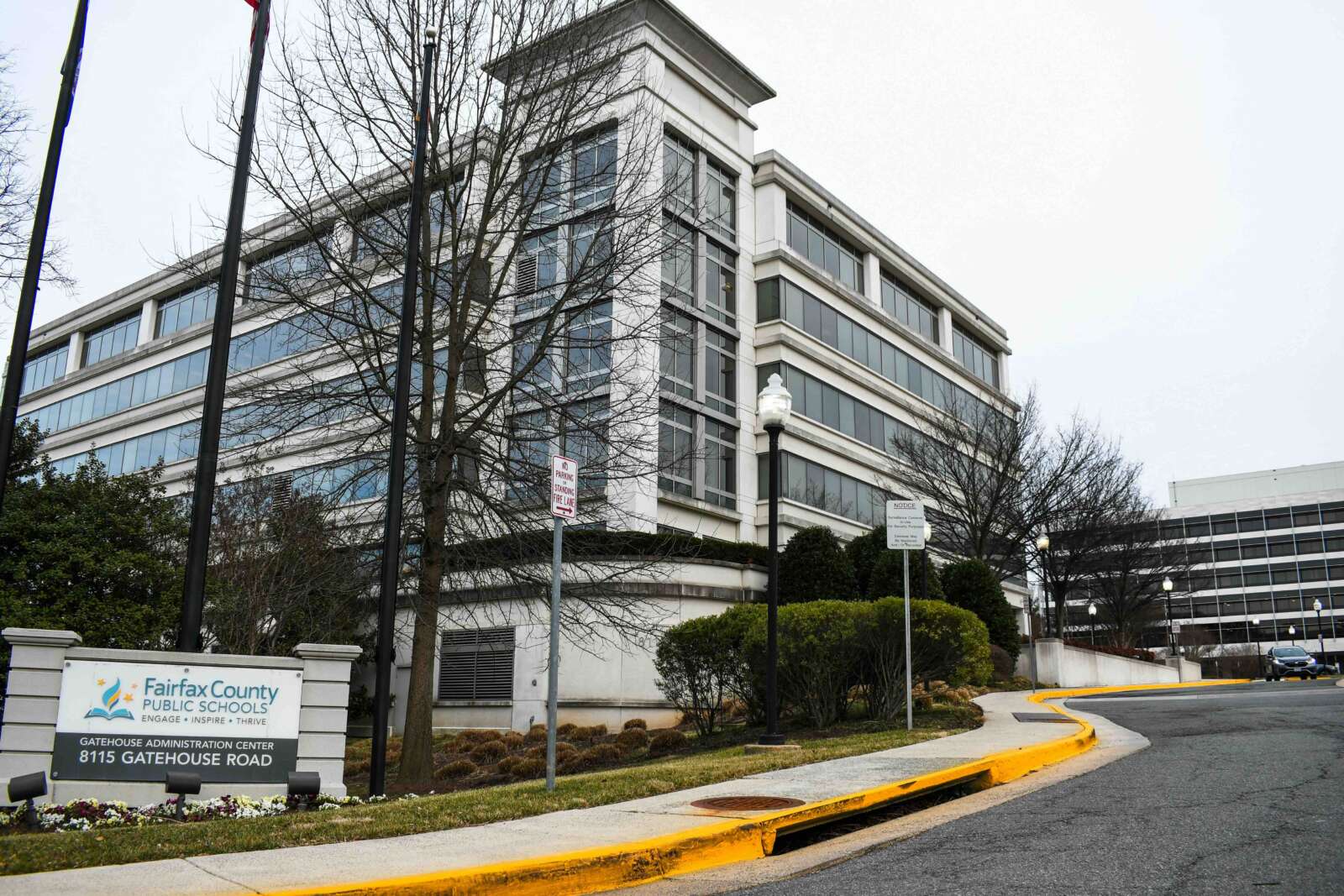
Fairfax County Public School Board members have finalized a first draft of the division’s new boundary adjustment policy, which is scheduled for a full board review next month.
The major updates to the new policy mandate that the superintendent adhere to a specific set of criteria when drawing school boundary lines and require a county-wide review of school boundaries every five years.
The new draft policy, still subject to revisions, follows several months of discussion among school board members on the best approach to address overcrowding throughout the division.
The revised policy retains elements of the existing one, such as assigning students to schools based on proximity to their homes. However, under the proposed changes, when establishing new boundaries, the superintendent must ensure that schools have sufficient capacity for future students; avoid splitting students from the same neighborhood among different schools; minimize student travel times; and provide equal access to programming.
The superintendent may also consider additional factors when setting school boundaries, including the following.
- Minimizing disruptions to teaching
- Reducing reliance on temporary classrooms
- Cutting future budget costs
- Ensuring easy access to nearby neighborhoods
- Enhancing family involvement
- Maintaining long-term stability in school attendance zones
While these additional criteria are optional, At-large school board member Kyle McDaniel emphasized the superintendent must prioritize the first four.
“The biggest difference between the current policy and the new policy is this “may”/”shall” language,” he told FFXnow. “The old policy just had 14 criteria that had no priority or no ranking or no real intentional guidance to staff in terms of what the board would prioritize over other items.”
School board members have also updated the language in the old policy concerning the superintendent’s authority to make emergency boundary adjustments.
In cases of a “catastrophic event” or emergency, the superintendent has the authority to temporarily adjust school attendance areas without school board approval, provided the affected student population is less than 15%.
The superintendent must notify the school board of any adjustments, but a vote is not required unless the changes are expected to be permanent.
Board members also revised the section on expedited boundary adjustments, adding language that authorizes the superintendent to recommend such adjustments after consulting with the school board and conducting publicly-noticed meetings, should the following situations occur.
- New unoccupied housing requires to students to be reassigned to prevent overcrowding
- Adjust for transportation needs
- Manage excess enrollment
- Respond to program changes
- Address school openings and closings
- Address unexpected construction issues or delays
The policy also ensures that future boundary adjustments will be phased in, meaning high school students currently enrolled would not be forced to transfer.
If the board adopts the new policy, expected by June or July, it would likely not take effect until the next school year, according to McDaniel.
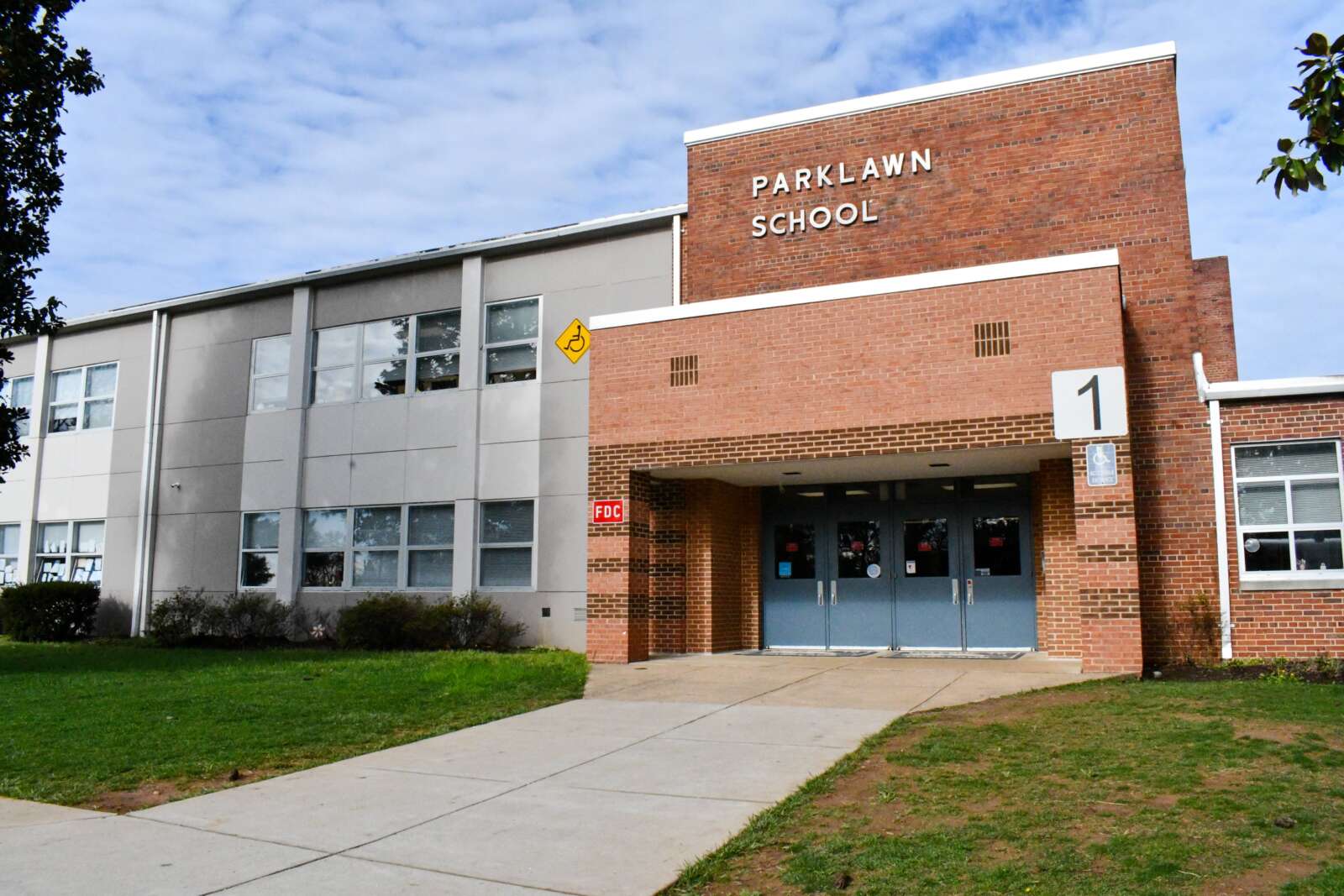
Several Fairfax County School Board members are working to revise the division’s boundary adjustment policy, which they believe is key to addressing the school system’s overcrowding issue.
Although there is agreement that a new policy is needed, some members are cautious about the timing and methods of its implementation.
School board members call for change
Over the past few months, Fairfax County School Board members have engaged in several heated debates about adjusting boundaries for key schools across the county that are either currently facing or projected to face severe overcrowding within the next three to four years.
In February, the School Board approved boundary adjustments for Parklawn and Coates Elementary Schools, which are experiencing some of the worst overcrowding in the district, according to facilities staff.
During that same meeting, however, several elected officials, including At-Large Member Kyle McDaniel, stressed that this would be the last time they supported a one-off boundary adjustment and called for a comprehensive overhaul of the school system’s decades-old boundary policy.
“I don’t like these one-off things because this is like traffic light timing,” McDaniel told FFXnow following the school board’s February meeting. “If you time one traffic light differently, it’s going to affect the surrounding traffic lights. If you change one school boundary, it is going to change every school around it.”
Reaffirming their earlier commitment, many members, including McDaniel, voted the following month against Mason District Representative Ricardy Anderson’s motion to advance the next phase of a boundary adjustment for Glasgow Middle School—a proposal initiated in 2023 before the new school board took office.
Anderson’s colleagues argued that it would only be fair to evaluate Glasgow alongside all other schools requiring boundary adjustments simultaneously after adopting a new policy.
Too many students, not enough space
While the school system’s student population is anticipated to stay relatively stable for the next five years, staff project the county’s population could grow by nearly 400,000 people by 2050, potentially adding significant strain on local schools.
Since 2019, the student population has decreased from more than 188,000 to roughly 180,000. Still, more than two dozen elementary and nine high schools are facing or projected to face moderate to severe overcrowding.
Elementary schools in the most critical condition (over 115% capacity) include Wakefield Forest, Coates, Kent Gardens, and Pine Springs. On the high school side, Justice and Chantilly are facing a “substantial capacity deficit,” per the school system’s Capital Improvement Program report for fiscal years 2025-2029.
For years, the school division has attempted to alleviate overcrowding by adding modular classrooms (trailers), renovating old school buildings and constructing new ones.
More recently, the school board has invested millions in renovations for more than a dozen elementary schools, such as Herndon and Mosaic, with funding still needed for another eight schools.
And while these renovations will be crucial to alleviating its capacity problems in the future, McDaniel notes that the division is running out of space to build new schools and modular classrooms.
“We just can’t build the school fast enough,” he said. “We cannot keep up with the growth of the enrollment.”
McDaniel also pointed out that construction could take years, during which the overcrowding issue may worsen.
Instead, McDaniel and other governance committee members are working to develop a new boundary adjustment policy that will address school capacity issues on a more accelerated timeline.
“I’m working on a four-year timeline,” he said. “I want this wrapped up and done within the next 24 to 36 months.” Read More
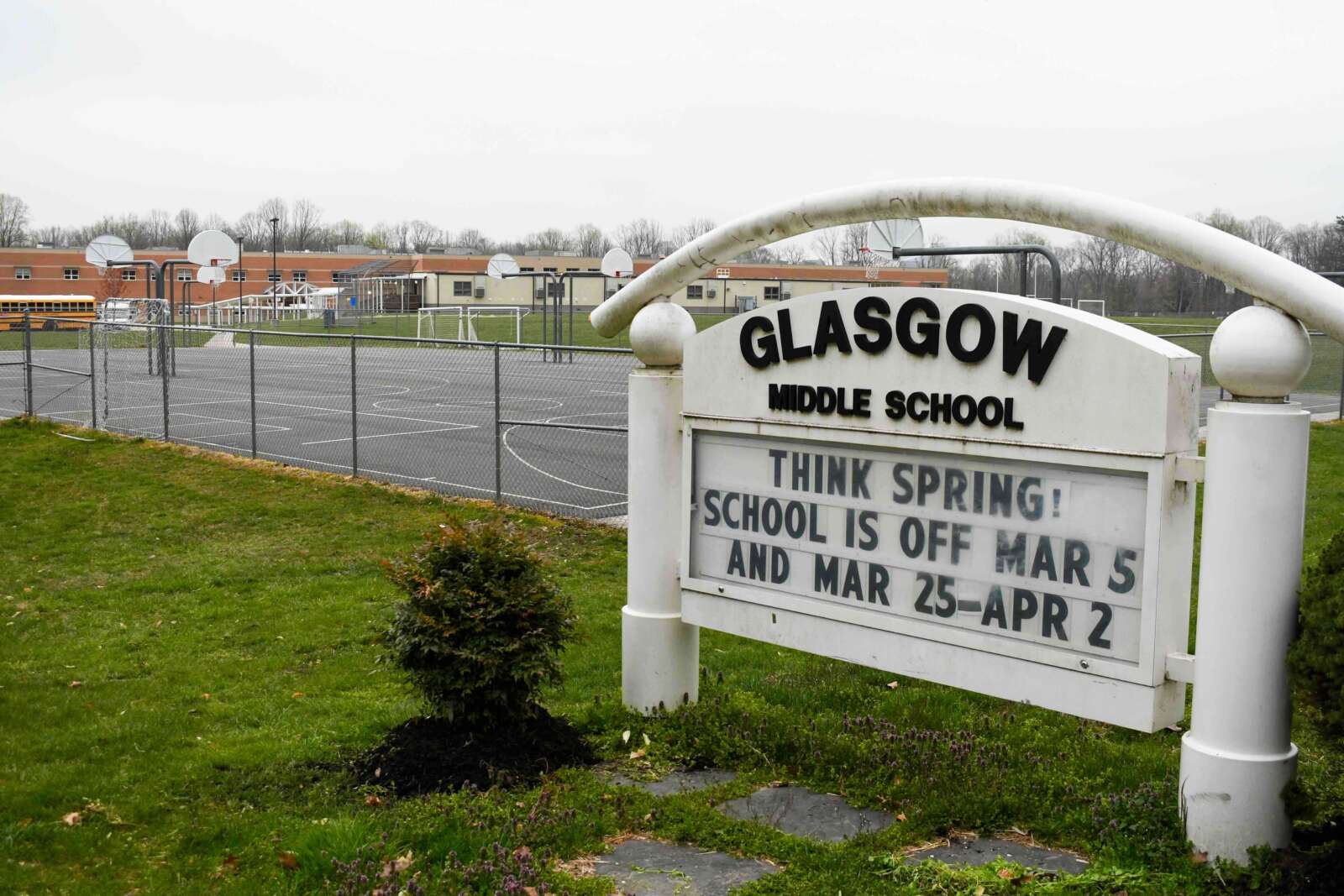
Though it’s near full capacity, the Fairfax County School Board has chosen not to proceed with boundary adjustments for Lincolnia’s Glasgow Middle School.
Instead, they’re betting on a broader, “holistic” approach to boundary changes that could reduce overcrowding across all schools.
With two abstentions, the school board voted 7-3 last Thursday (March 21) to reject a staff proposal to decrease Glasgow Middle School’s population from 1,722 students to 1,350. The plan would’ve redirected incoming students to other nearby middle schools, including Poe, Holmes and Jackson.
The board’s decision came a month after they moved to prioritize boundary adjustments for Parklawn Elementary School in Lincolnia and Lutie Lewis Coates Elementary School in Herndon, which staff anticipated will exceed total capacity within four to five years.
At their Feb. 8 meeting, several board members stressed they would only back boundary adjustments for Parklawn and Coates with the understanding they will be the final instances, highlighting the need for a comprehensive review of current boundary adjustment policies.
The school board’s governance committee is actively reviewing its policies and aims to present a draft of recommendations for potential adoption by the full board later this spring.
At their March 21 meeting, several board members voted against the Glasgow boundary study based on their commitment in February to withhold support for any further adjustments until a broader strategy was approved.
“I made a commitment to all the board members here when we had that discussion that we have to look at this holistically,” Franconia District representative Marcia St. John-Cunning said.
“I know teachers at Glasgow…I understand the situation,” she continued. “I have situations like that in my district, but we have to look at this holistically if we’re going to tackle this problem. And be equitable and fair, and considerate, and look at the entire county, not just one district.”
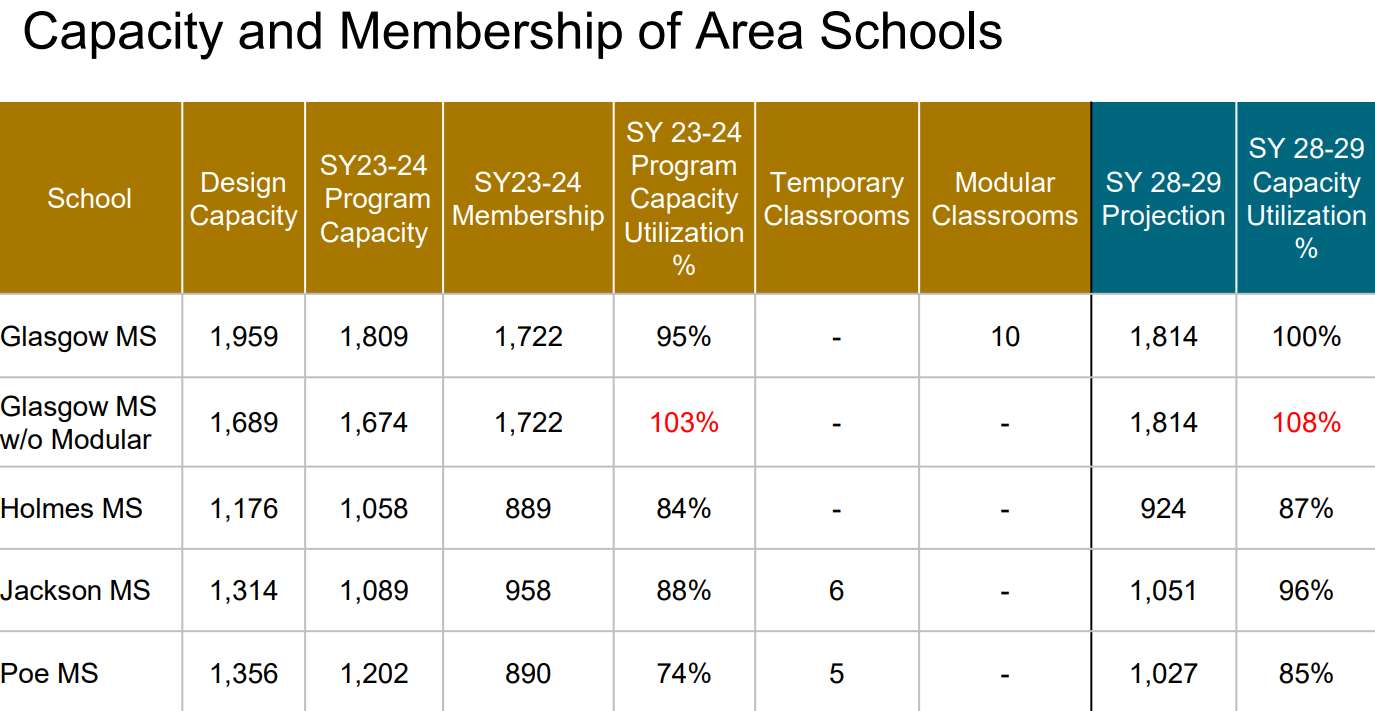
Mason District representative Ricardy Anderson clarified that the proposal before the board members was not a final plan, but rather, a proposal to narrow the scope of the boundary adjustment, which has been under discussion since last fall. Staff had recommended taking some Advanced Academic Programs out of consideration.
Had the board approved the motion, a public hearing would have still been necessary before the board could formally adopt any changes.
Anderson — one of just three returning members after last November’s election — also pointed out that the previous school board had asked staff to look into adjusting Glasgow’s boundaries, which are in her district, and that this process has already been going on for a few years.
“Glasgow currently has 1,722 kids. Holmes has 883 fewer kids. Poe has 832 fewer kids. It’s twice the size of those other schools within a 3-mile area,” she said. “This is not a new conversation. It is not going to usurp or upset or be out of alignment with any pending future work.”
Yet, when probed about her stance on the Glasgow proposal with a more comprehensive strategy for boundary changes in motion, Superintendent Michelle Reid indicated she no longer backed it.
“If you’re asking today whether I think that this [boundary adjustment] is in our best interest to move forward with, in light of the holistic work…I would not recommend doing that,” Reid said. “I think it would be better subsumed under a more holistic work.”

Students are getting organized in response to a lawsuit challenging Fairfax County Public Schools for its LGBTQ-inclusive policies.
The Pride Liberation Project, a student-run group that advocates for LGBTQ+ rights in Virginia, will host a rally “against anti-trans hate” outside Luther Jackson Middle School in Merrifield at 6 p.m. today (Thursday). The demonstration will precede the Fairfax County School Board’s meeting, which starts at 7 p.m.
“I’m really hoping that Fairfax County and our school board will stop this attempt to hurt and degrade my fellow students,” Laura Troung, a senior at Falls Church High School, said. “LGBTQIA+ students are already disproportionately facing the youth mental health crisis in addition to bullying and harassment at schools and this is just adding salt into the wound.”
Represented by America First Legal, a right-wing legal group led by former Donald Trump advisor Stephen Miller, an unnamed high school student sued the school board on March 4 over its policies dictating that students be treated in accordance with their gender identity.
In her complaint, the student says being “compelled” to address classmates by the name and pronoun that matches their gender identity violates her religious beliefs as a Roman Catholic. She also argues that the policies discriminate on the basis of sex because of her discomfort with using the same bathroom as transgender girls.
Students with the Pride Liberation Project, however, describe FCPS’ regulation 2603 as critical to creating a safe, welcoming environment for LGBTQ+ individuals.
Transgender youth whose peers affirmed their identities, including by using their correct names and pronouns, reported significant reductions in symptoms of severe depression, suicidal thoughts and suicide attempts in a 2018 study conducted by University of Texas at Austin researchers.
In contrast, reported school-based hate crimes targeting LGBTQ people have soared since 2015, particularly in states with laws that restrict the rights of transgender students or prohibit education on gender and sexuality, according to the Washington Post.
The Virginia Department of Education’s model policies directing schools to treat students based on their “biological sex” spurred protests and school walkouts across the state in September 2022, including ones organized by the Pride Liberation Project.
Students also rallied outside Luther Jackson Middle School last year after FCPS pledged not to adopt the state policies.
“The fact that so many of my friends and teachers respect my pronouns and my name is life-saving to me,” Moth DiNizzo, a McLean High School junior, said. “I know that they care about me and trust my own self-perception. It’s wonderful and I want everyone to experience that same joy of being known and trusted.”
The planned rally comes shortly after the Fairfax County Board of Supervisors designated March 31 as Transgender Visibility Day. The International Transgender Day for Visibility was created in 2009 to celebrate the lives and achievements of the transgender community.
At its meeting on Tuesday (March 19), the board approved the proclamation 9-0 with Springfield District Supervisor Pat Herrity, the board’s only Republican member, away from the table.
Supervisors said the designation is an important acknowledgement of the county’s diversity and their commitment as elected officials to support all residents.
“We have an obligation to do everything we can not just to protect [the LGBTQ+ community], but to use our voices to stand up and support them and to make sure that the rest of our community sees that that’s what their government is doing,” Chairman Jeff McKay said. “Regardless of what’s happening in Richmond, we will always stand up and fight to protect every single person in this county.”
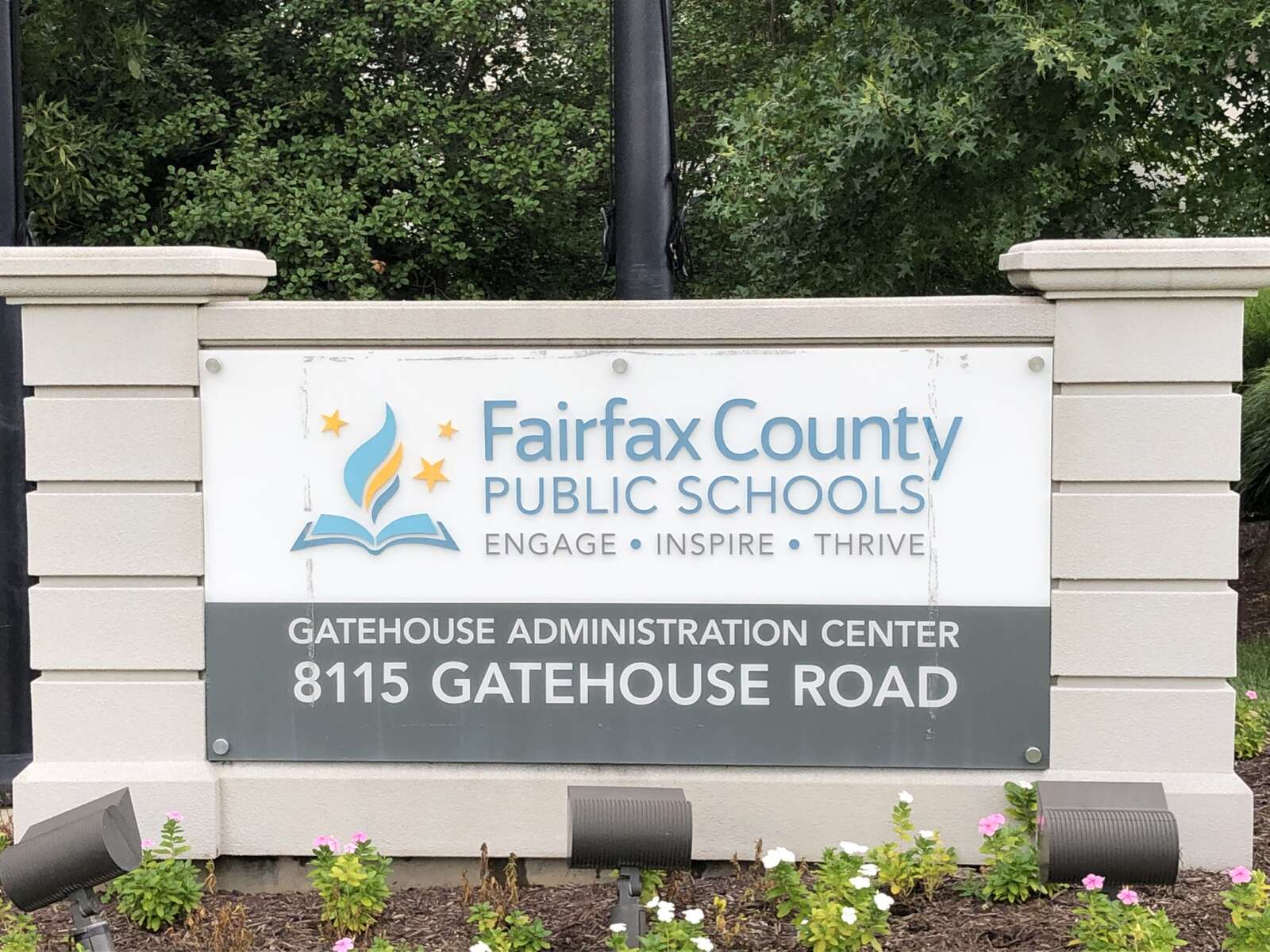
Settlement money from vape-maker Juul will help Fairfax County Public Schools bolster security at some high schools.
The Fairfax County School Board is set to vote tomorrow (Thursday) on adjustments to the school system’s fiscal year 2024 budget, including allocations of the $3.2 million it received from Juul after settling a class-action lawsuit over the company’s flavored e-cigarettes last year.
In a presentation to the board on March 7, FCPS staff recommended using the funding to “install security scanning technology at select high schools” as part of a new pilot program. If approved, the funds would add onto $3 million designated for the program in August, FCPS Chief Financial Officer Leigh Burden noted.
However, FCPS has been tight-lipped about the pilot, including on the technology being implemented and how many schools are participating.
“At this time, we are not prepared to provide details of the program to the public,” an FCPS spokesperson told FFXnow. “This information will be released when, and as appropriate, to include the identification of schools. Safety and security physical and technical systems are needed to assist in operational safety planning.”
FCPS confirmed the safety and security screening pilot is separate from the security vestibules that it has been adding at dozens of schools around the county. Prioritized by the school board in response to the May 24 shooting in Uvalde, Texas, the vestibules add an extra layer of verification for visitors seeking to enter school buildings.
Last April, Superintendent Michelle Reid detailed several other security measures that FCPS was either testing or considering, including vape sensors in bathrooms, panic alarm systems and a weapons screening system.
At the time, FCPS said the weapons screening system was in the pilot phase. It’s unclear if that’s the same as the screening technology pilot now poised to get additional funding.
The school board also approved funding in December for exterior security cameras at nine elementary schools, along with money to support continuous employee background checks.
Other changes proposed as part of the FY 2024 third-quarter review include a transfer of $3.3 million from a reserve fund to a fund dedicated to supporting FCPS’ summer school programs.
“Summer school focuses on executive functioning, acceleration of reading and mathematics foundation skills, enrichment programs at the elementary and middle school level, and course credit recovery to ensure on-time graduation at the high school level,” staff said in a summary of the third-quarter review.
The money will support programs for 35,000 students at 73 sites, according to Burden. FCPS had set aside a total of $6.7 million in August for enhanced summer learning programs, but that was before staff finalized the locations and enrollment projections.
The budget is also being adjusted to reflect a grant received for food services, new federal funding for adult education and an $143.5 million increase in “additional contractual commitments” for bond-funded renovation projects at Bren Mar Park, Brookfield and Lees Corner elementary schools.

(Updated at 12:25 a.m.) A right-wing legal group led by Stephen Miller, a former advisor to Donald Trump when he was president, is challenging Fairfax County Public Schools over its policies supporting transgender students.
America First Legal filed a complaint against the Fairfax County School Board on Monday (March 4) arguing that the school system is discriminating on the basis of sex and religion by letting students use the names, pronouns and bathrooms that match their gender identity.
The complaint was submitted to the Fairfax County Circuit Court on behalf of an unnamed female student. It identifies “Jane Doe” as a current high school senior who has attended FCPS since 2014, when she was in third grade.
Her opposition to the regulations that the school board originally adopted in October 2020 stems from her beliefs as a “practicing Roman Catholic” that “rejection of one’s biological sex is a rejection of the image of God within that person,” the filing says.
According to the lawsuit, the student supports her peers using the name and pronoun they’re “comfortable with” and “having access to the use of private restrooms” if they don’t want to use ones that correspond with the sex they were assigned at birth.
However, she objects to being “compelled” to address other students by their “chosen” names and pronouns, and she says sharing bathrooms with transgender girls “makes her feel unsafe and uncomfortable.”
“The Petitioner lives in daily fear that if she speaks in a manner that is consistent with her sincerely held philosophical and religious beliefs, she will be subject to discipline, chastisement, and/or social ostracization,” the complaint said.
Last updated on April 21, 2022, FCPS Regulation 2603.2 says all students should be treated in accordance with their gender identity “to ensure that all students, including gender-expansive and transgender students experience a safe, supportive, and inclusive school environment.”
FCPS leaders maintained their support for the policy last year after the Virginia Department of Education released “model policies” directing public schools to treat students based on their “biological sex.” The state’s proposed policies prompted student protests in Fairfax County and across Virginia when they were first released in 2022.
The VDOE policies are facing a discrimination lawsuit filed last month by two transgender students backed by the ACLU of Virginia. Though an American First Legal advisor says FCPS’s policies contradict Virginia Supreme Court rulings, the U.S. Supreme Court upheld an appeals court decision in 2021 that found banning transgender students from using the bathroom that aligns with their gender identity is unconstitutional.
FCPS didn’t return a request for comment on America First Legal’s lawsuit by press time.
Providence District School Board Representative Karl Frisch, who chairs the board, stressed that FCPS “remains committed to fostering a safe, supportive, welcoming, and inclusive school environment for all students and staff, including our transgender and gender expansive students and staff.” Read More
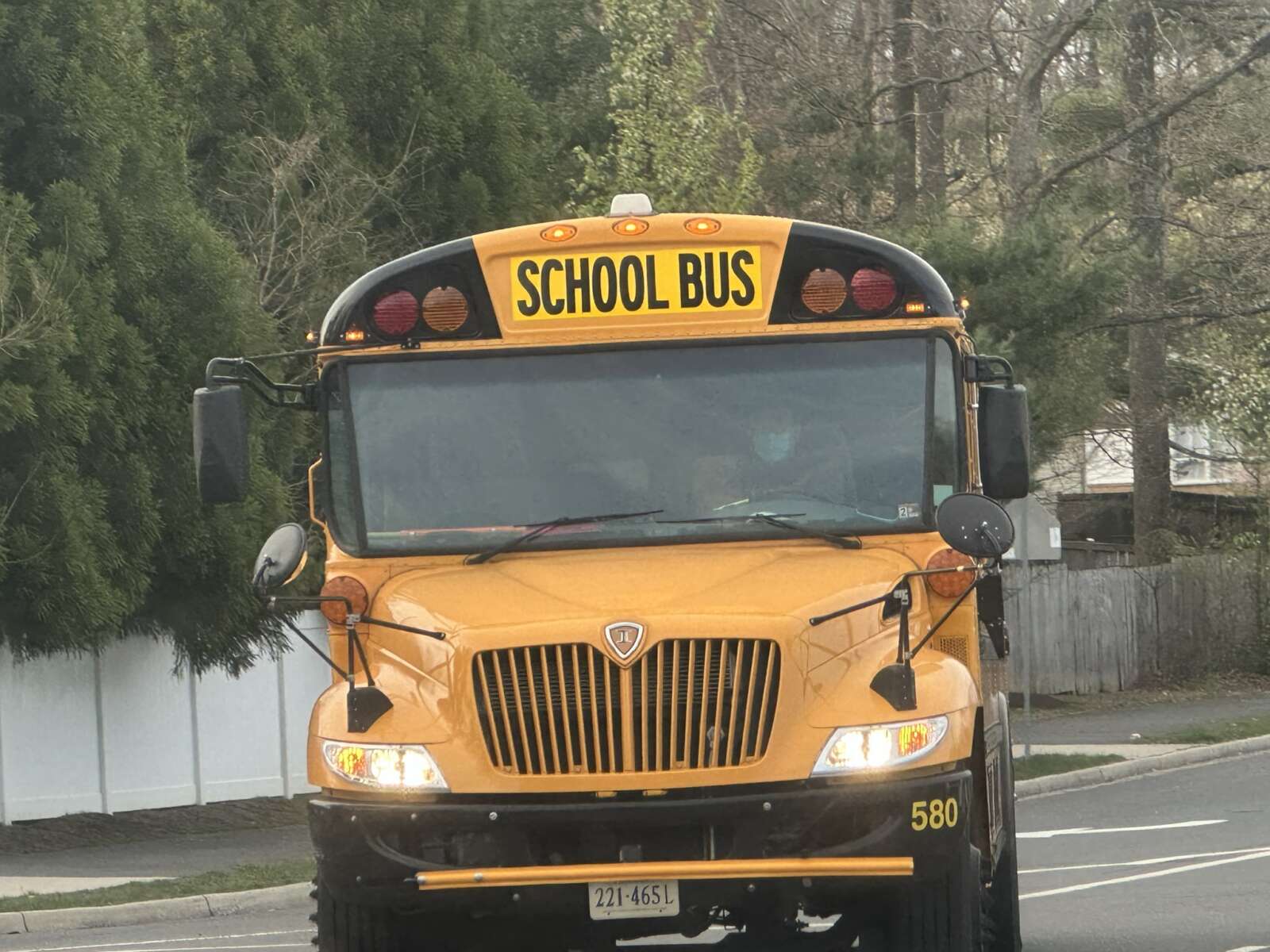
The Fairfax County School Board is moving ahead with its plan to change middle school start times.
According to Fairfax County Public Schools, research has shown that later start times could positively influence student academic performance and mental and emotional well-being.
Last September, the school system awarded consulting firm Prismatic Services a contract to develop a plan for changing middle school start times to 8 a.m. or later. The goal is to make these changes without changing high school start times or impacting the FCPS budget.
Currently, all middle schools start at 7:30 a.m. FCPS moved high school start times to around 8 a.m. in fall 2015 through its Blueprint for Change adoption. At the time, the then-superintendent said revisions to middle school start times would be considered at a later date.
At a meeting last Thursday (Feb. 22), the school board received an update on the plan from Prismatic Services President Dr. Tatia Prieto, who said the goal is to recommend start times to the board in January 2025 with the intent to implement changes by 2026, if the board adopts them.
“To get there, we have a number of milestone activities,” Prieto said. “The background report, which we’re currently engaged in, [covers] the history of efforts in Fairfax around this issue. We’re also developing a number of case studies with a few large school districts to look at lessons learned from their implementation.”
The firm will also conduct on-site observations at selected middle schools.
“This is going to include observing bus observations at selected middle schools in order to get a good feel for things,” Prieto said.
The plan also includes a total of eight public information sessions for the community — four in the spring and four in the fall.
“The spring ones are going to be more informational in nature,” Prieto said. “We’ll communicate about sleep research, and let participants discuss how later school start times could be beneficial and could be implemented. And then the fall ones will present two to four alternatives for input.”
Additionally, the firm will conduct online surveys and forums. One major concern in changing school start times is transportation constraints, which Prieto said would be covered in the information sessions.
“Analyzing the potential impact of moving middle school start times on both the number of drivers needed, and on all the special programs will be part of our work on this project,” Prieto added.
Mount Vernon District School Board Representative Mateo Dunne questioned how a possible time change would affect extracurricular activities like sports, particularly in the fall and winter when the sun goes down earlier.
Prieto pointed to Anne Arundel County Public Schools, which also hired Prismatic Services to help change its school start times.
“All of their middle schools start at 9:15. They shifted their sports program — which is much more extensive than what you currently have — to the after hours, and are not experiencing any problems,” she said.
Dunne also asked how a change in the start time would affect staff and teachers working at middle schools. Prieto said they propose surveying teachers to find out if they foresee any potential issues.
“I will add that we did develop, as one of the initial documents for this, a list of the key stakeholders we need to talk to,” she said.
Springfield District Representative Sandy Anderson requested more information on how later start times has affected attendance at other schools.
“I have an eighth grader. I can’t imagine having him have to get to school on his own at 9:40, so that is terrifying to me,” Anderson said.

Plans for a future elementary school in the Herndon area are materializing after the Fairfax County School Board approved a land transfer.
At a Feb. 22 meeting, the board unanimously approved the conveyance of a nearly 5.6-acre site from developer Pomeroy Clark I.
“FCPS legal counsel negotiated an agreement for the conveyance of the school site and other corresponding conveyance documents, including a special warranty deed,” staff said in meeting materials.
Pomeroy Clark I plans to build 519 townhomes and stacked flats on a 44-acre site called “One Sunrise Valley.” Once completed, the neighborhood will feature up to 1.5 million square feet of residential and retail development near the Dulles Airport.
The school site is located at the intersection of Frying Pan Road and Sunrise Valley Drive. According to drawings, it will include a building of roughly 135,000 square feet with up to five stories. Preliminary plans show that it would be located opposite a 296-unit multifamily unit building.
Greg Riegle, a partner for the law firm McGuireWoods representing the developer, emphasized how multiple stakeholders worked together to execute a plan.
“One Sunrise Valley joins a comprehensive list of approved land use applications that will transform western Fairfax County for the better,” Riegle wrote in a statement. “Frankly, the property owners stepped up to the plate to solve a critical school capacity issue while working in tandem with County officials and planning staff to maximize the development potential for the site.”
To the north, Coates Elementary School is operating at 131% capacity, according to Fairfax County Public Schools’ latest capital improvements plan. The school board voted earlier this month to prioritize the school at 2480 River Birch Road for a boundary adjustment.
The board approved the land transfer with no discussion.

Fairfax County Public Schools is seeking a solution to its ballooning student meal debt, which soared over the past year.
On Tuesday (Feb. 20), Fairfax County School Board members directed Superintendent Michelle Reid to get them more information on what options are available to prevent FCPS students from accumulating more debt due to their inability to pay for meals.
“So, in my view, we need to do some work to…put policies or procedures in place that, A) prevent the ballooning of this debt going forward, and B) expand access to lunches for kids, so we can feed more children and deter the potential practice — that may or may not be occurring — of holding children liable for the debt,” At-large member Kyle McDaniel said during the work session.
As of 2022, over one-third of FCPS students (34%) qualify for free and reduced-price meals through the National School Lunch Program, but FCPS Chief Financial Officer Leigh Burden said parents might not have realized that they needed to reapply after the end of a universal free school lunch program introduced during the pandemic.
The federal relief funds that paid for that program, which enabled all students to eat for free, ran out on July 1, 2022. FCPS reported an increase in students eating school food while the program was in effect.
Although schools are supposed to send out newsletters to parents with information about meal debt and free or reduced lunches, Burden recognized that families may be unaware of their accumulating balance.
She also emphasized that in some cases, families barely exceed the eligibility threshold for free lunches, making it difficult for them to clear their debt.
“So, we think those two things combined have contributed to the student debt rising so dramatically over the last two or three years,” she told the board during the work session.
About one-fourth of FCPS schools qualify for the Community Eligibility Provision program, which provides free lunch and breakfast to all students attending low-income area schools.
But elsewhere, students only qualify for free meals if their family earns less than 130% of the poverty level. Those with incomes between 130% and 185% of the poverty level qualify for reduced-price meals.
For grades K-12, breakfast costs $1.75. Lunch is $3.25 for elementary schools, and $3.50 for middle and high school students.
Burden notes that meal debt has been steadily rising since she was hired six years ago. However, in the last few years, the debt has “skyrocketed” across the entire school system, she said.
“During the years that all meals were free, we were serving 160,000 meals a day, whereas now, we’re back to about 110,000 [meals],” Burden said. “I mean, think about that: 50,000 students more were eating each day who now aren’t.” Read More
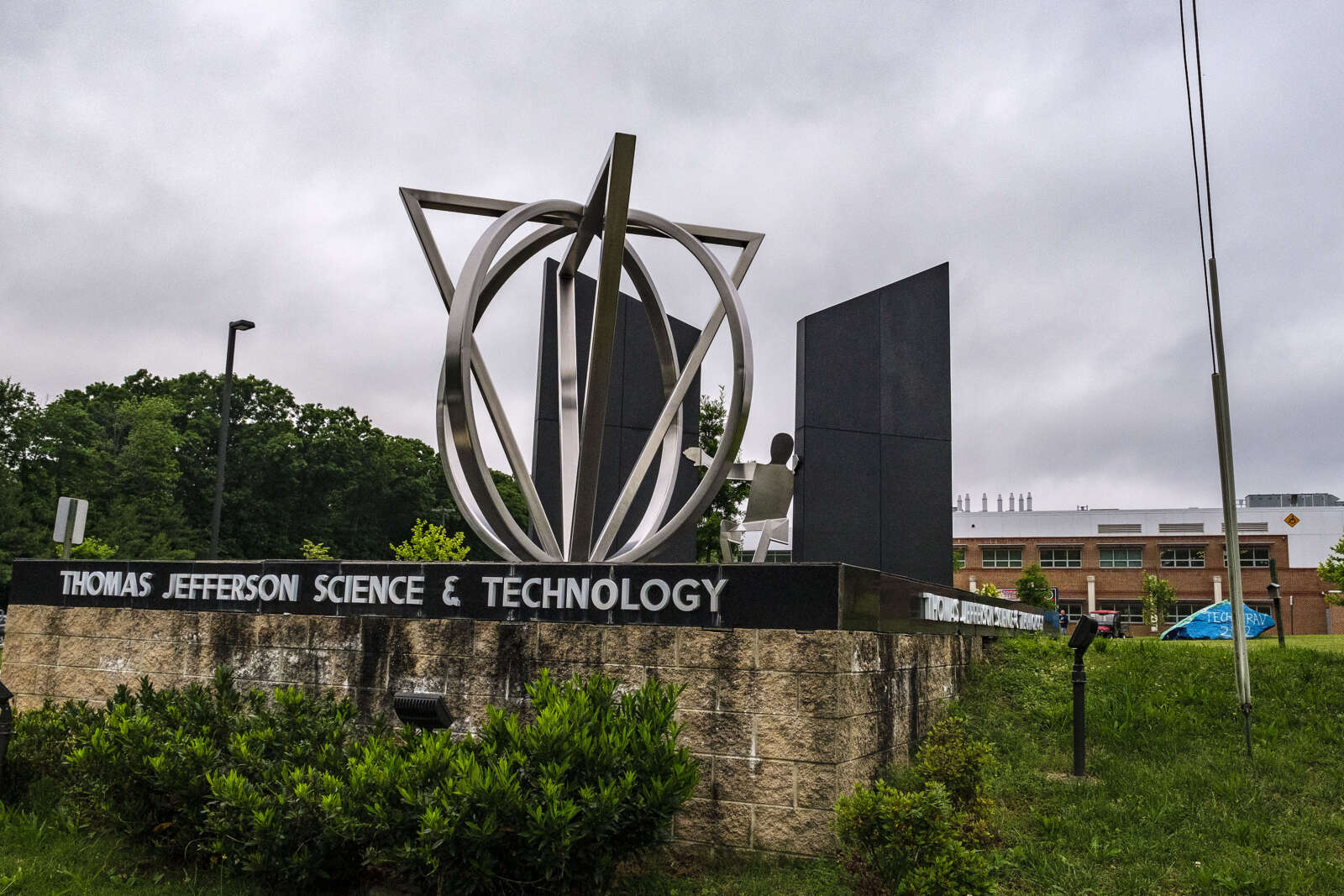
Thomas Jefferson High School for Science and Technology’s current admissions policy will remain in place after the U.S. Supreme Court declined to consider a lawsuit alleging that it discriminates against Asian students.
The Supreme Court denied a petition for a hearing today (Tuesday) by the Coalition for TJ, an advocacy group that sued the Fairfax County School Board in 2021 after the admissions process for the highly competitive magnet school was revised with the goal of diversifying the student body.
The Supreme Court’s decision not to take up the case ends a legal battle that lasted nearly three years and could’ve upended diversity initiatives in public education nationwide.
“We have long believed that the new admissions process is both constitutional and in the best interest of all of our students,” said School Board Chair Karl Frisch, who represents Providence District. “It guarantees that all qualified students from all neighborhoods in Fairfax County have a fair shot at attending this exceptional high school.”
The school board voted in December 2020 to eliminate a standardized test and application fee that were previously required for students seeking admittance into Thomas Jefferson High School (TJ). The board also raised the minimum grade point average for applicants, guaranteed eligibility to the top 1.5% of eighth graders at each middle school and added essay requirements and consideration of “experience factors” such as a student’s status as a recipient of free meals or involvement in special education.
Spurred by student activism after Fairfax County Public Schools reported that fewer than 10 Black students had been accepted in both 2019 and 2020, the policy overhaul has resulted in more diverse classes at TJ, particularly in terms of geography and income, since the changes took effect in 2021 for the Class of 2025.
Though Asian students got 61.6% of offers for the freshman class that entered last fall, compared to 19% for white students, 6.7% for Black students and 6% for Hispanic students, the Coalition for TJ has argued that the revised policy was designed to reduce the number of Asian students at the school, violating Constitutional protections against racial discrimination.
A district court judge agreed with the coalition in 2022 that Asian American students were “disproportionately harmed,” ordering FCPS to scrap the new admissions policy. However, that ruling was overturned last May by an appeals court panel that found the coalition had failed to prove that the school board “adopted its race-neutral policy with any discriminatory intent.”
The coalition petitioned the Supreme Court to pick up the case after the justices ruled in June 2023 that colleges can’t explicitly consider race as part of their admissions processes, ending decades of affirmative action programs intended to boost Black, Hispanic and other often underrepresented students.
Pacific Legal Foundation senior attorney Joshua Thompson, who represented the Coalition for TJ, says the Supreme Court “missed an important opportunity” to address admissions policies like the ones adopted for TJ that don’t explicitly consider race but still affect student demographics.
“Today, the American Dream was dealt a blow, but we remain committed to protecting the values of merit, equality, and justice,” Coalition for TJ co-founder Asra Nomani said in a statement. “…For the courageous families who have tirelessly fought for the principles that our nation holds dear, this decision is a setback but not a death blow to our commitment to the American Dream, which promises equal opportunity and justice for all.”
In a statement from FCPS, Frisch noted that TJ has accepted students from every Fairfax County middle school and maintained an average grade-point average for its incoming classes of 3.9 over the past three years.

